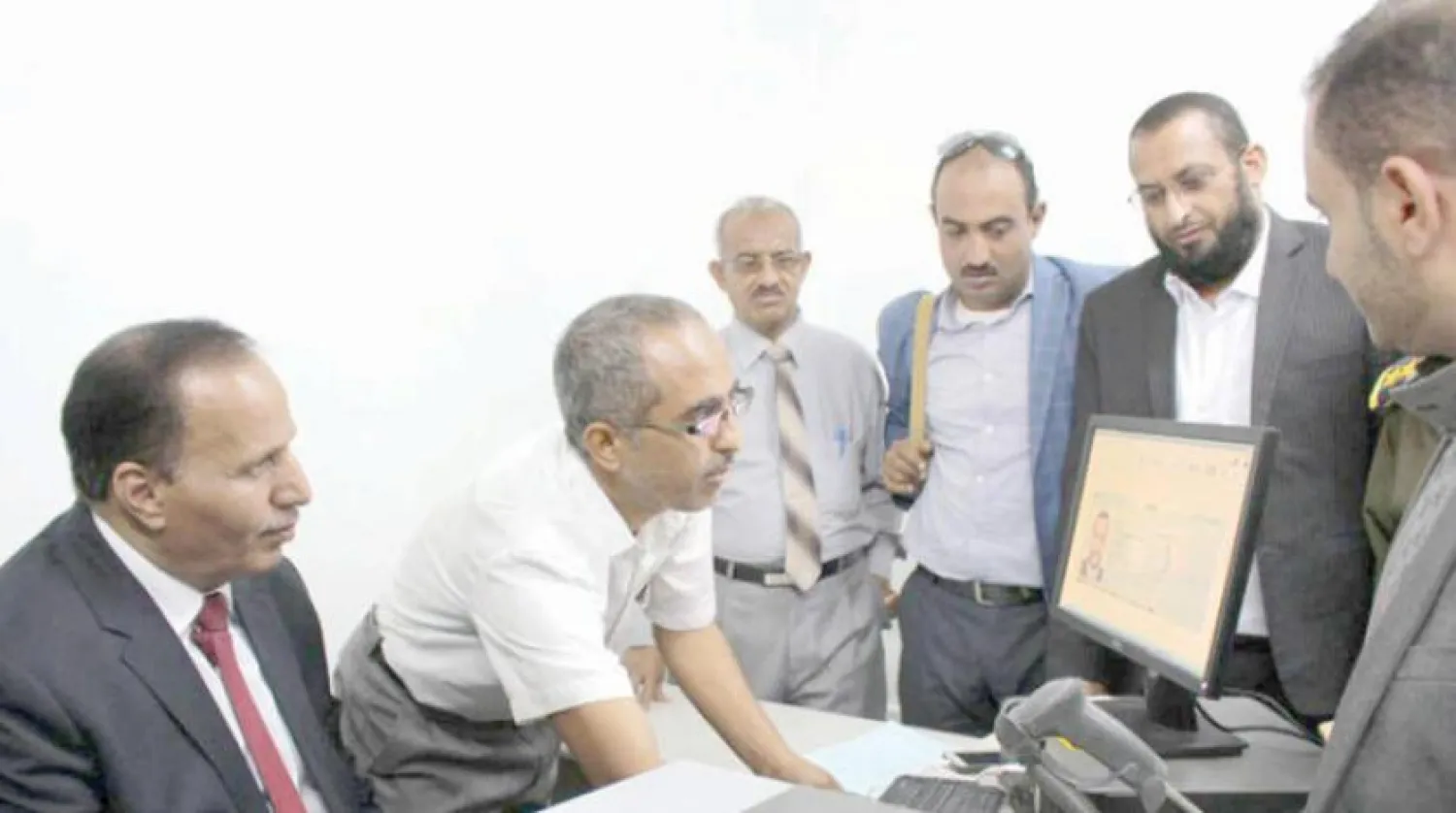Yemen’s legitimacy has continued to improve its services in Taiz despite the siege enforced by Houthi and Saleh militias.
In that regard, deputy Prime Minister and Minister of Civil Service Abdulaziz Jubari inaugurated the local automated passport issuance center in the district and monitored the issuance of the first passport after a nearly three-year shutdown.
“The re-inauguration of passport issuance is a significant step in the process of rendering state institutions in Taiz functional," State news agency quoted Jubari as saying.
The Deputy PM stated that there has been a distinguished pace in re-normalizing life ever since the Central Bank’s branch, executive offices, schools and universities, and security and military apparatus premises have been re-opened.
Jubari believed that a larger number of services will help overcome all adversities and bring the situation back to normal in Taiz.
Furthermore, the minister allocated over 22 million Yemeni riyal to 55 amputees in Taiz.
Jubari also chaired a meeting with the local authority in Taiz to oversee the re-normalization of life and resolve the issue of the largely unpaid salaries of civil servants.
He also directed the renovation of the governorate’s main offices, and ordered work to be continued from temporary offices.
Jubari lauded the sacrifices of people of Taiz for "enduring the devastation of war and blockade,” adding they taught the militias valuable lessons that can’t be forgotten throughout history.
Meanwhile, Houthi and Saleh militias continued to target residential areas in Taiz, mainly its eastern neighborhoods.
Local activist Mokhtar Ahmed told Asharq Al-Awsat that militias are still committing crimes in Taiz amid an international silence. He stated that shelling on a residential area killed a man, and a woman who had already lost two of her children in previous Houthi attacks.
Ahmed also indicated that at least two civilians were killed by shelling on General Thawra Hospital.
In other news, Minister of Social Affairs Ibtihaj al-Kamal warned that the future of children in the militia-controlled areas is in great danger because the insurgents have disrupted their school life.
In a statement to Saba News Agency, Kamal said insurgents are the biggest violator of children’s rights in Yemen with the "suspension of education" in many schools, because of the militias' failure to pay salaries to teachers, and their infusion of school textbooks with "a racist sectarian ideology."
"The coup militias have worked to destroy 1,700 schools, deprive 2.5 million children of education and print 11,000 textbooks having a racist sectarian ideology," she indicated, adding that about 9,000 children under the legal age were denied their education rights and were forced into battlefields.
The minister appealed to human rights organizations to force the radical militia to stop implicating children in their lost war and to comply with international laws concerning children’s rights. She called on the UN’s agencies to blacklist the militia as a violator of children’s rights.
Kamal pointed out that King Salman Center for Relief (KSrelief) is working on rehabilitating children formerly recruited as militia fighters to be integrated again into the society through a number of programs in Maerib and al-Jouf districts.









